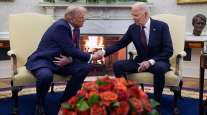Planning Board Wants Virginia to Study Tax Based on Miles Driven

With the rise of electric and other fuel-efficient vehicles, the state Virginia association of metropolitan planners is asking state Secretary of Transportation Shannon Valentine to take a look at a new way to pay for roads.
The Virginia Association of Metropolitan Planning Organizations said in a letter that it’s “concerned with the future sustainability” of road funding because of a reliance on gas taxes.
Gas-tax revenue doesn’t come close to fully funding building and maintenance for Virginia’s roads. The association pointed out that localities requested more than $9 billion for road projects last year, but only $1 billion was available.
RELATED: VMT useful in infrastructure funding, study says
On the federal side, the 18.4 cents-per-gallon gas tax hasn’t changed since 1993. The state raised its tax to 22.4 cents per gallon in 2015 and added a 2.1% regional gas tax to Hampton Roads and Northern Virginia in 2013.
Meanwhile, though, cars are using less gas, electric vehicles are becoming more popular, roads and bridges are aging and less money is coming in.
“We feel that the existing level of transportation funding is inadequate to meet statewide needs,” the association wrote. “[The state needs] a sustainable way to fund transportation in the 21st century.”
The association suggests that the state look at alternatives such as a vehicle-miles-traveled tax – a pay-as-you-go tax for each mile driven. The Hampton Roads Transportation Planning Organization, the group in charge of long-range transportation planning in the region, endorsed the letter May 17 with no discussion.
RELATED: Vehicle-miles-traveled fee ‘seems to capture all users,’ Rep. Graves says
The association cited a Forbes study that said electric vehicles accounted for less than 1% of vehicles in 2016 but could grow to 25-38% by 2030.
“If the current transportation funding system is left unchanged, this transition will cause the amount of transportation funding available for Smart Scale and other State funding programs to decrease significantly,” the letter said. “We appreciate the work the commonwealth has done to develop the Smart Scale system for prioritizing the use of scarce transportation funding, but it will be of limited use in the future if there is little to no transportation funding to prioritize.”
RELATED: Drivers would pay tax on miles traveled under lawmaker’s plan
Del. David Yancey, (R-Newport News), who sits on the HRTPO board and is chairman of the House transportation committee, said he’d have to research the idea more before taking a stance.
Sen. Frank Wagner (R-Virginia Beach) has been involved in the fuel tax debate for years. He says that the VMT tax is worth studying as a more reliable source of revenue but that it raises a host of questions:
How much revenue would it bring in compared to the gas tax?
How would you measure a vehicle’s miles — with a tracking device or odometer checks?
How would you capture revenue from out-of-state vehicles?
How would you bill and collect the tax?
How would drivers react since many don’t see the gas tax broken out in the price they pay at the pump?
Could you dedicate the revenue from certain corridors, such as I-64 and I-81, to go directly back to expanding those roads?
RELATED: Business groups say time is now to increase gas tax for roads
“I don’t think we’re there or any state is there yet,” Wagner said on the VMT concept. “I almost think you need to look at it the national level.”
The bottom line, he says, is that electric vehicle owners need to be paying for the streets they use.
Politically, it’s unpopular to simply raise the gas tax. Previous Gov. Bob McDonnell had a plan to eliminate the tax and raise the sales tax rate. It didn’t go anywhere.
It’s not the first time the state has looked into VMT. In 2008, VDOT assembled a report on other states considering the idea.
A decade later, California, Illinois, Oregon, Washington are among the states considering a VMT tax or alternative taxation system for roads.
Oregon, which is in the midst of a volunteer pilot program, charges 1.5 cents a mile, but it’s designed to raise only the same amount as gas-tax revenues.
Some have concerns about the government’s ability to snoop on our travels. The idea is “unwaveringly unpopular,” according to the Mineta Transportation Institute.
Valentine, who is traveling this week, has yet to see the letter because it hasn’t been officially sent yet. But a spokesperson said one of the secretary’s main priorities is to find a solution for diminishing gas tax revenues and the impacts on state roads.
Distributed by Tribune Content Agency, LLC




